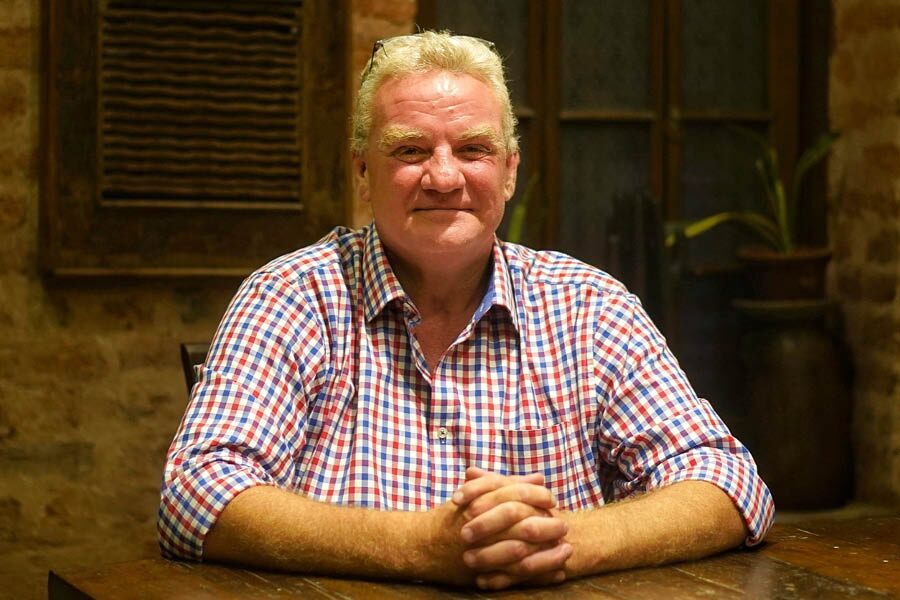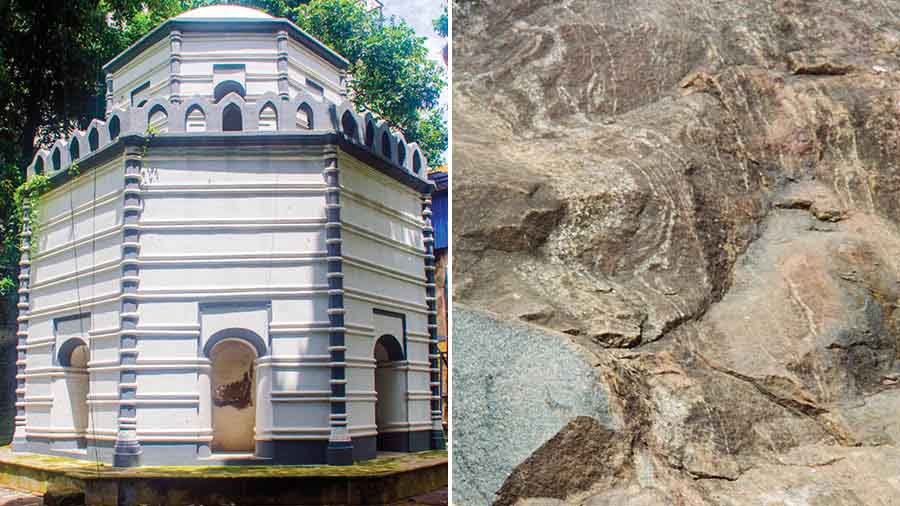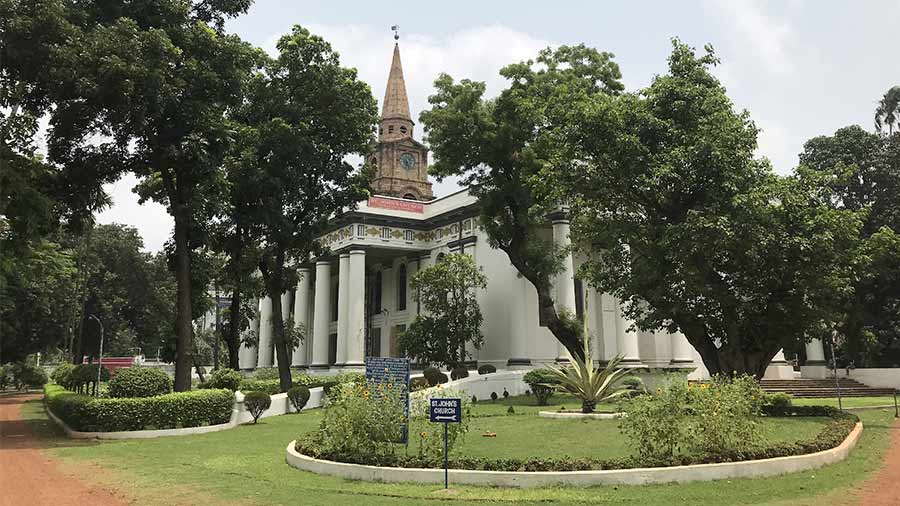If Job Charnock had not arrived in Sutanuti village in 1690, Kolkata as we know it may not have existed today. Last week, one of Charnock’s descendants, John Charnock, arrived in the city with his family, in order to fulfil a generational dream and understand the city better. My Kolkata caught up with him on what drew him to the City of Joy, its sparkling heritage, and its connection with his home country.
‘I came to Kolkata to honour my father’s wishes’
My Kolkata: Welcome to Kolkata! How did the idea for this trip come about?
John Charnock: When I was 15 and about to go to military school, my father told me that we were related to the founder of Kolkata, Job Charnock. He made a lot of stuff up, so I wasn’t sure if this was true. It was my father’s dream to visit the city, although he never made it. I later went on to work in the British army for two decades, followed by five years in London as a fund manager, and two in Egypt in the real estate sector. I then spent a decade as a wine merchant. In all my life, I’ve only met six other Charnocks whom I wasn’t related to.
Anyhow, I first started thinking about Kolkata 10 years ago. During the Covid-19 pandemic, my wife and I realised that our children were entering their teenage years, and decided to travel the world with them. Over the next few years, we explored Africa, Vietnam and Cambodia. On the plane back from Vietnam, we were wondering where to go next. That’s when I realised that the obvious answer had been before us all along: Kolkata! I found myself driven by the desire to not just bring my children here, but also to honour my father’s wishes.
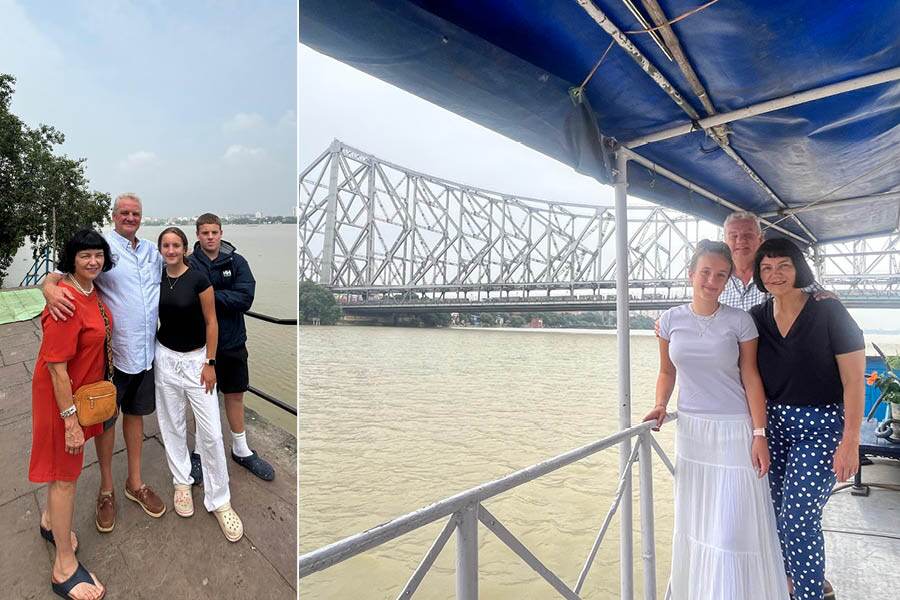
The Charnocks at the spot where Job Charnock arrived in Kolkata in 1690; with the Howrah Bridge in the background John Charnock
How did you plan the trip?
I have a tendency to ask for recommendations for everything. I have a Punjabi friend, who knew someone with family in Kolkata, who knew someone who lives here. He said that despite living in the city for 30 years, Ifte (Iftekhar Ahsan, founder of Calcutta Walks and Calcutta Bungalow) had shown him things that he didn’t know existed. Six months ago, we got on call and immediately knew that he was the right choice. Not only is Ifte intelligent and confident, but also quite handsome (chuckles). While looking for accommodation, he suggested this place he ran called Calcutta Bungalow. We saw its pictures online, and felt that it was perfect! From then on, he’s been brilliant, helping us with every aspect of the trip.
My friends in the UK asked me to be careful with my words in West Bengal, because people are super intellectual here. All the kindness, warmth and chaos we expected to find here, everything is true. Our room is fantastic, the people are warm and the food is delicious. And to think everything started with a suggestion by a friend of a friend of a friend!
‘We were shocked to know that there’s a stone named after us!’
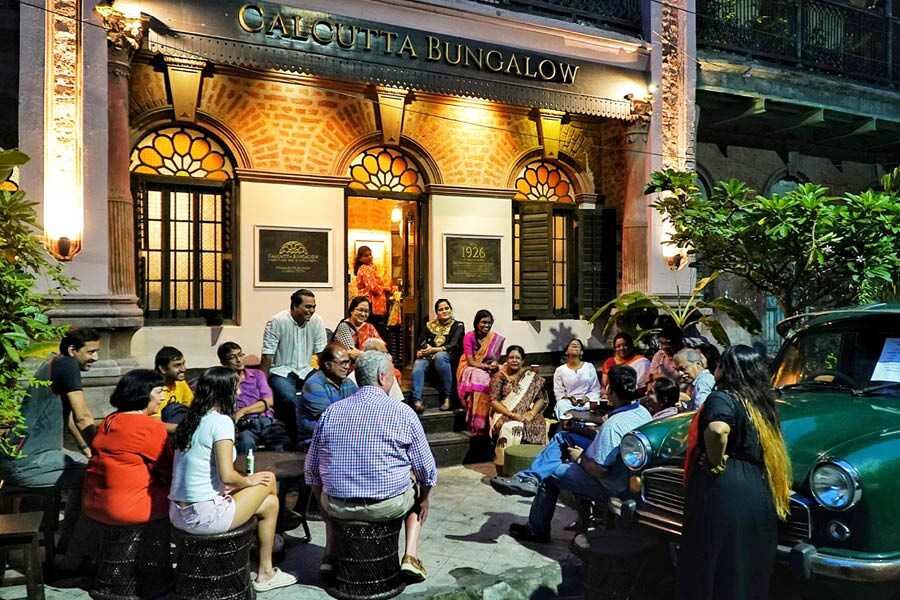
The family also took out time to partake in one of Calcutta Bungalow’s classic addas, discussing Job Charnock’s role in modern Kolkata, and what the city would be like if he hadn’t arrived here Soumyajit Dey
What did you get to see?
The shining light in Kolkata was kindness.
On the very first day, we took a boat out on the Ganga. People swam towards us, shouting “Welcome to India!” It was so special. We also did a tour of Job Charnock’s mausoleum, his legacy in Kolkata, and the rest of what they call the “White Town”. The street food tour was equally special, where we tried kathi rolls, smoked (Bandel) cheese, and dahi phuchka. I want to open a kathi roll shop in London now, you could make a fortune selling it! We even explored the place where they make the idols of Durga and Kali (Kumartuli). I have never seen anything quite like it.
At the mausoleum of Job Charnock, the black stone was called Charnockite, and we were shocked to know that there’s a stone named after us!
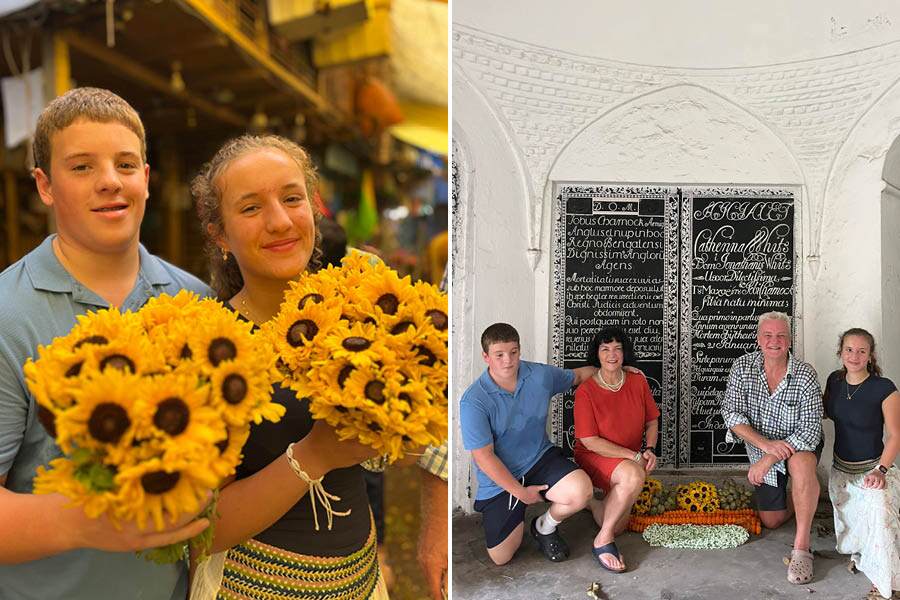
The trip concluded with the Charnocks presenting flowers from the (L-R) Mullick Ghat Flower Market at the mausoleum of Job Charnock. “John had requested for a piece of Charnockite from the geologist at our adda. And lo and behold, Kolkata gifted a piece of Charnockite to the Charnock family,” said Iftekhar Ahsan John Charnock
What struck me most about Kolkata, though, was the architecture. It’s stunning, but sadly falling down. Everywhere you look, there are these amazing buildings, but with trees growing out of them. It would be a travesty if they were replaced by the nasty steel and glass buildings. You don’t want Kolkata to look like every other city in the world, and this architecture could be a source of major tourism. Calcutta Bungalow is the perfect case study and people should take cues on how to rebuild the city from it.
‘Kolkata, for me, is more than Job Charnock’
What have been your major takeaways from this trip?
Firstly, Bengalis are so intellectual! We’ve felt right at home here. Then again, It’s very difficult to get your head around the scale of a country like India, especially when you come from a small country like Britain. The distances are huge, and Kolkata is the same size as London.
Secondly, it's about how far we’ve come towards creating a more inclusive world. When I was in school, we still had maps from World War II that taught us to invoke pride in our ‘empire’. But now, not only does everyone in the UK have Indian friends, but we also ended up having an Indian-origin Prime Minister!
My research made me realise how the British didn’t come here for philanthropy, but business. That’s also why, Kolkata, for me, is more than Job Charnock. I know most of the facts about him, but I want to know more about the city’s history, its occupancy by the East India Company, and how it contributed towards the relationship between Kolkata and Britain.
England has changed so much in my lifetime, and my upbringing has a stark contrast with my daughter’s. When we went to St. John’s Church, we saw the memorial of the Black Hole massacre in Kolkata. She had learnt all about it in school, and instantly knew how wrong we were. She has friends from all over the world, and a lot of the old biases have never entered her generation.
In terms of shopping, Deborah (his wife) bought a lot of spices because of their freshness and scent.
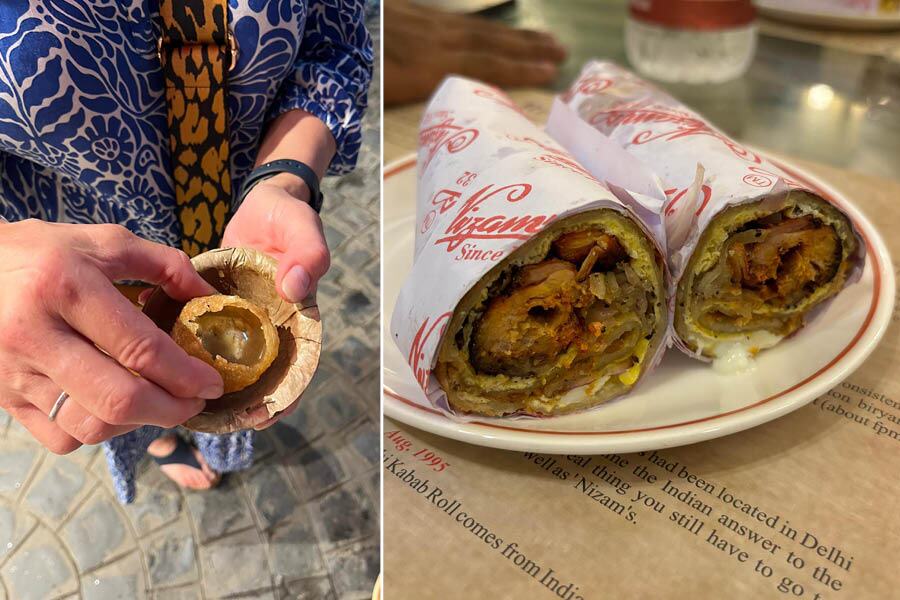
A trip to Kolkata would have been incomplete without some phuchka and kathi rolls John Charnock
Has this made you engage with your roots at a deeper level?
There is more inherited guilt, when I understand what we did here. It is uncomfortable… I’m looking forward to having the time to process everything I’ve learnt here, and read and contextualise it. But we will come back to Kolkata for sure.
